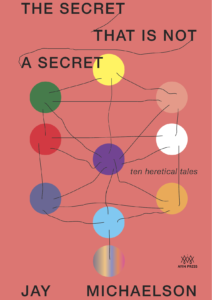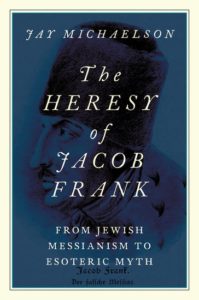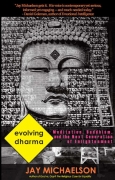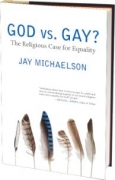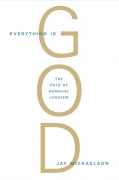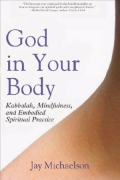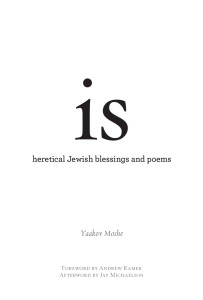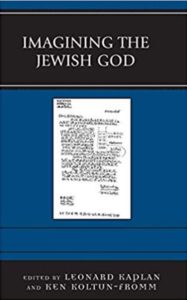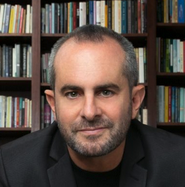Nishmat Hayyim Three-Day Meditation Retreat, August 26-29
$375-675 including all room and board
at Prindle Pond Conference Center
Charlton, MA
More Info / Registration
A Residential Meditation Retreat with Jay Michaelson and Seth Castleman
Thursday, August 26, 2010, 5:00 PM – Sunday, August 29, 2010, 12:00 noon
Residential retreat, including continuous mindfulness and silence, is the single best way to develop and deepen a meditation practice. It is much easier than daily practice, because momentum develops over time, enabling easier concentration and more focused attention. It is the ideal “next step” for those seeking to intensify their meditation practice, and the best “first step” for those seeking to launch it.
This retreat will focus on building concentration and mindfulness, in the style of Buddhist vipassana (insight) meditation, but within a Jewish framework of prayer and contemplation. We will explore how these two traditions intersect, and how meditation can deepen Jewish practice and Jewish awareness. Perhaps distinguishing this retreat from others, we will accommodate multiple forms of Jewish religious observance, and — thanks to the generosity of Nishmat Hayyim’s community — hopefully welcome individuals of a wide range of ages and financial backgrounds: the retreat is offered on sliding-scale pricing, and scholarships are available. Practice will include sitting, walking, and eating, together with Jewish prayer, contemplation, and community. The retreat will be held in noble silence.
Our teachers are part of the “next wave” of younger meditation teachers with serious Buddhist and Jewish backgrounds. Seth Castleman, co-founder and guiding teacher of Nishmat Hayyim, is completing his rabbinic training, and also spent several years as a dedicated dharma practitioner in the U.S. and Asia. Jay Michaelson, recently named to the “Forward 50” list of the leading Jewish innovators in America, brings to his teaching both eighteen years as a student and teacher of Kabbalah and serious dharma practice in the U.S. and Asia. Both Seth and Jay are qualified to teach meditation according to the traditional requirements of the Theravadan Buddhist tradition, and both are professional Jewish educators and activists.
This is a unique opportunity to explore meditation in a supportive Jewish context, in a diverse and welcoming community. Food will be vegetarian, and all rooms are singles. As of August 10, the retreat is half sold out, so please register soon. Advance registration is required. To register for the retreat, visit http://www.nishmathayyim.org. For information, email office@nishmathayyim.org or call 617-244-3757 .
To apply for financial aid, please email office@nishmathayyim.org and send us a one-paragraph email introducing yourself, indicating how much you are able to pay, and explaining what you hope to get out of the retreat. That’s all!
Cost for retreat, including teachings:
Scholarship: $375
Standard: $525
Supporter: $675
Advance registration is required. Â Click here to register now.
———————————————-
YHVH Means Is: Why It’s Good for Jews to Meditate
by Jay Michaelson
Many Jews meditate, and most meditate in ways developed in the Buddhist tradition. That this is so, is undeniable; why this is so, is a subject for the sociologists — but what does it mean for the practitioner? What are the benefits of meditation for a Jewish spiritual path, and what are the benefits of a Jewish path for serious dharma practice?
I”d like to sketch a few answers here, based on my own experience and studies. Briefly, I”ll sketch some of those. On the Buddhist side, I have done serious dharma practice for a decade, sitting two and three month silent retreats in the Theravadan tradition (familiar to Americans through institutions such as the Insight Meditation Society and the Spirit Rock center, as well as the teachings of S.N. Goenka) and eventually reaching the level of “attainment†that qualifies me to teach in that tradition. I do not have the type of Buddhist religious practice that would be familiar to, say, a Chinese Buddhist, but I do have a Buddhist meditation practice that would be familiar to a monastic or lay practitioner. On the Jewish side, I have studied and taught Kabbalah for fifteen years, am completing my Ph.D. in Jewish Thought at Hebrew University, and have written two books and about a hundred articles on Jewish theology, culture, and spirituality. My personal practice includes keeping shabbat in a nearly Orthodox way, keeping kosher in a Conservative way, and celebrating all the major and minor holidays. I speak Hebrew fluently and lived in Israel for three years, I have sampled Jewish meditation traditions as well as Buddhist ones, and I am deeply invested in Jewish cultural and religious life as a committed nondenominational American Jew. Finally, in both traditions, my teachers include traditionalists and innovators, spiritual teachers and academics; I am informed by all of these approaches.
1.
I see Judaism as a way of being in relationship with that which is beyond my personal concerns and self-centered nature.  Jewish ritual gives form to my life and color to my culture. And it gives me an opportunity to encounter what some call the sacred or holy aspect of human experience. This way of being in the world is accessible all the time, but it’s not so easy to access, because at almost all waking moments, our minds are busy taking us somewhere else — into the future or the past, into evaluations about the thing rather than the thing itself, into a thousand different desires. You can have the television on and not even notice what show is on. You can be nervously twitching your leg without realizing it. You may be lost in thought and unaware even of your own emotions. So, what practice is about is becoming really present, aware of what’s happening now.
For meditators, this should sound familiar, because meditation is an excellent way of calming the mind (“concentrationâ€) and then, based on that calm, learning about the essential nature of experience itself (“insightâ€). In the Buddhist frame, the former is merely a ground for the latter: the point isn’t to relax because it feels good, but to relax because a quieted mind enables insight to arise. In secular and Jewish frames, concentration is also a foundation for other purposes: “mundane†insights into how we live our lives, or even an experience of the sacred, of holinesses too minute to usually command our attention.
For an illustration of how meditation works, imagine the mind like a radio, trying to tune into a station, but filled with the static of distracting thoughts. I find that to hear the music clearly, there are two choices. One is to turn up the volume, and the other to turn down the static. In life, turning up the volume means having intense experiences: peak spiritual moments, or other moments in life when things are suddenly crystal clear because you are really there. I hope you’ve had such experiences. Maybe when you were really “on” in some artistic creation, or, if you have a religious practice, when your practice took you to heights of ecstasy you’d never experienced before. These peak experiences are really nourishing. They show us that there is far, far more to this miracle of life than what we ordinarily experience. They give us a glimpse of possibility, of Light.
Unfortunately, peak experiences tend not to last; you can’t chase kicks forever. So, instead of blasting the volume, is it possible to fine-tune the perceptive apparatus so that the station gets tuned in really clearly and we can be present? Yes — and meditation is a process for doing so. Through various techniques of slowing down the mind and letting go of thoughts and desires and the rest, we enable ourselves to see clearly. That’s really the central point.
Where you go from there depends on what you want to do. For example, meditation can also lead to profound states of mystical ecstasy, physiological phenomena like rapture, and deep relaxation — and many people practice to attain these states. But, at least in the Buddhist world, that’s not really the point. The point is to see clearly what is going on, at any given moment — to become present. To really know this moment, intimately and clearly.
That’s a Western-Buddhist way of saying it. In Jewish language, we might inquire into the mandate v‘ahavta et adonai elohecha, b’chol levavcha, b’chol nafshecha, u’v’chol meodecha. You shall love YHVH your god, with all of your heart, with all of your soul, and with all of your might. Now, how do you do that? Once again, I come back to the image of the radio and the static. To turn down the distractions and focus on what really matters, on deeply-held values, or on the silence which gives birth to wonder. This is not about having weird or wacky experiences, but about showing up more fully for whatever life is offering.
Rabbi Nachman of Bratzlav said: “The world is full of light and mysteries both wonderful and awesome, but our tiny little hand shades our eyes and prevents them from seeing.”
Now, once again, “showing up†is a beginning, not an ending. One of the places Jews can go from there is to relate their experiences in the clear light of meditation to key theological and mystical notions. For example, in the nondual Jewish theology of the Hasidim, God fills everything in the world. Though it seems to be otherwise, we are God swimming in God. Meditation can provide an experience of this reality, both through peak experiences and through insight. You can see how the “self†arises and passes, and you can see the trivia that gets in the way of the big stuff. In this way, meditation can be a ground for experiencing Ultimate Reality.
In my own life, all this has transformed by Jewish practice. It’s not about putting Jewish garb on Buddhist ideas in order to feel better about them. Rather, my meditation practice, which is basically Buddhist in nature, though it has some Jewish elements to it, has enlivened, transformed, and renewed my Jewish observance and relationship to God. It’s almost like the answer key to my religion. Now I know what all those prayers and books are talking about! When I meditate, the sense of love and sacredness arises naturally; the mysterious quality of knowing itself… it is impossible to describe, and yet, it is accessible without any particular agenda.
Of course, meditation is not the only way to experience the sacred. Art, love, prayer, ecstatic experiences — these work as well. One advantage of meditation, though, is that it enables not just another peak experience, but the possibility to be with negative mind-states also (sadness, anger, despair) and gain tremendous insight into how the mind works, and how the forces of greed, hatred, and delusion operate in the world. This doesn’t usually happen if you’re only getting high.
And meditation is a bit more truthful. (“The seal of God is truth,” Jews are taught in the Talmud.) What the Buddha observed, as a result of many years of sustained meditation and other practices, is that suffering is existentially real. We may well be the One, or Being, or God, or whatever — but the existential fact is that we are suffering because of our desires and aversions. The Buddha taught how to get free of it. Of course, we will always experience the arising of desire; enlightened people still get hungry. But that gnawing, thirsty, clinging desire — “If I don’t get something to eat right now, I’m gonna go nuts!” — that’s what the Buddha taught how to lose. I like, too, that while the peak experiences of meditation (specifically, concentration) are delicious, the cool insights are crystal clear and testable. The self really isn’t there — not because I had a groovy experience once, but because it disappears on close, careful inspection.
2.
Of course, there are important differences between Buddhism and Judaism, and I’m not one to efface them. In my own life, there are a number of Jewish elements that aren’t very Buddhist, and a number of Buddhist ones which aren’t very Jewish. For example, on the Jewish side:
S       I cherish a personal relationship to personal God — albeit in a monistic and nondual sense, which tends to erase most of the traditional theist/atheist cleavage lines. My religion has a strong devotional element. I love to read psalms, to speak to God in hitbodedut, to cultivate a love for the Divine — not just an awe or presence with it. I want to be with God when I’m ecstatic, davening, walking, on the toilet, bored, irritated, and, of course, having sex. Throughout, though, I am not just being with what is. I am rapturously, deliriously in love of God. Some times more than others.
S       Ritual in general, and Jewish ritual in particular, is a primary response to sacred. I observe much of halacha, particularly the sabbath and kashrut as traditionally understood. Putting on tallis and tefillin sometimes feels right, and loving, and beautiful. Asian Buddhists also have devotional ritual and mythic belief, of course — it’s only the Western ones who don’t.
S       I feel that life is to be lived and enjoyed, and share Judaism’s anti-monastic bent.  While I have engaged in periods of renunciation, I am not an ascetic. I am only to ‘lean back’ a little, away from grasping at them so much, into a more balanced place of equanimity.
And here are some Buddhist bits I have, that aren’t necessarily very Jewish:
SÂ Â Â Â Â Â Â The centrality of meditation and of experiential knowledge, not of text or authority.
S       The notion of Judaism and Buddhism as forms, not essences. They are paths to the One — fingers pointing at the moon, but not the moon itself.
S       A disbelief in the idea of one chosen people. When I see the word ‘Israel’ in Jewish prayer, I read it as “godwrestlers” of any persuasion, not people of a certain ethnic lineage.
S       Disbelief in the idea of sin and punishment in the classical sense. Actions have consequences, yes, but the wicked often get away with it, and the good often suffer.
SÂ Â Â Â Â Â Â Disbelief in the literal Torah-from-Sinai notion.
S       I believe in compassion — not obligation, faith in an origination myth, or fear of punishment — as the best motivator ethical behavior. I also believe that better action is not through external ethics (more the Jewish path: what is hateful to you do not do to your neighbor) but through inner transformation (more the Buddhist path: cultivate natural compassion through meditation and the practice of virtue).
Often, the first question people ask me when they hear I am a BuJu is about God. Having written a book trying to answer this question, I will simply reiterate here that the God in which I believe is not some deity which does or does not exist — God is Existence Itself. This is God as Ein Sof, as everything and nothing.  Moses asks how he’s supposed to describe God, and gets the reply “I Am That I Am,” Ehyeh Asher Ehyeh. Take out the pronoun, and you get “It Is What It Is.”
As heterodox as it may sound, I really see no difference between the nondual YHVH and the Buddhist Dharma with a capital “D.” It is what it is — that’s all there is to it. This is how God is always present, even with prophets in jail and saints in death camps. Because the present is always present. Now, even if the destination is the same, the paths do differ. In meditation, by closely watching our thoughts, and the awareness that accompanies them, we come to see — directly, not as a matter of doctrine — that there is nothing really here to call “me.” In most Jewish traditions, however, the nondual truth is expressed “top-down.â€Â For example, the great Kabbalist Rabbi Moshe Cordovero wrote:  “Realize that the Infinite exists in each thing. Do not say ‘This is a stone and not God.’ Rather, all existence is God, and the stone is a thing pervaded by divinity.”
Personally, I find the bottom-up, Buddhist path to this realization to be easier to communicate than the Jewish one, because it takes nothing for granted. Yet on an emotional level, I sometimes find the top-down “God” more available than the bottom-up “Being.â€Â In this way, the Buddhist and the Jewish map on, in my experience, to the contemplative and the devotional aspects of religious life. The brain is Buddhist, the heart is Jewish.
In fact, my real tensions aren’t between Buddhism and Judaism so much as between spirituality and self-actualization. I really want success, I really want approval — I, I, I. Yet “I†also know that it is precisely when this “I†relaxes that the deepest senses of meaning and contentment arise. Yet in nondual Buddhist language, liberation is not an escape from samsara to nirvana; it is recognizing that samsara is nirvana. In nondual Jewish language, truth is not running from the world to God; it is knowing that God is both the world and its negation, both essence and existence, both truth and illusion. The mask is of the same Divinity as the Divinity it conceals within. This is no small point. It is the link between enlightenment and love, wisdom and compassion. The shadow, too, is light.
